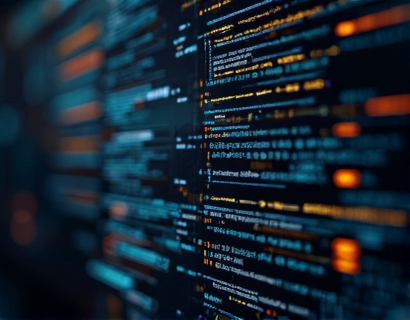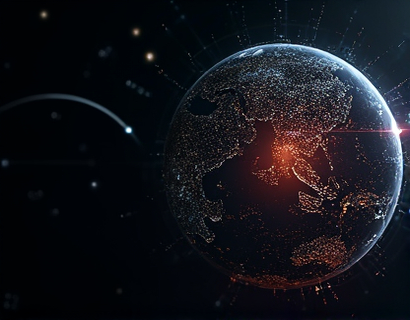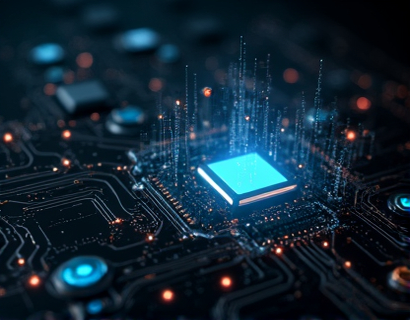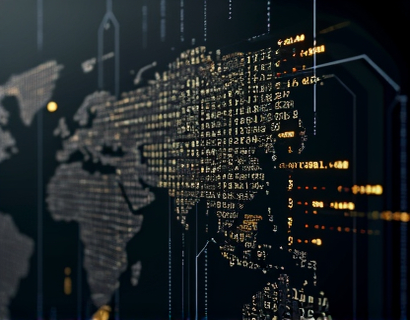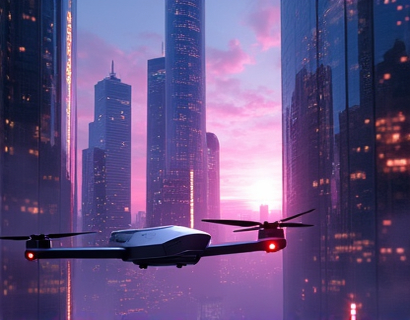AI-Powered Task Management: Transform Your Life with Intelligent Organizational Tools
In the fast-paced world of today, managing tasks efficiently is more crucial than ever. The integration of Artificial Intelligence (AI) into task management tools has revolutionized the way individuals approach their daily routines and long-term goals. These advanced intelligent tools offer personalized solutions that not only simplify task management but also enhance focus and streamline daily activities. This article explores how AI-powered task management can transform your life, making it more structured and fulfilling.
The core advantage of AI in task management lies in its ability to learn from user behavior and preferences. By analyzing patterns, AI tools can predict tasks, prioritize them, and even suggest optimal times for completion. This level of personalization ensures that users are not just managing tasks but are doing so in a way that aligns with their unique work styles and lifestyles. For individuals who often feel overwhelmed by the sheer volume of tasks, AI provides a breath of fresh air, offering a systematic approach to organization.
Enhancing Focus Through AI
One of the significant challenges in task management is maintaining focus. Distractions are abundant, from social media notifications to unexpected emails. AI-powered tools tackle this issue by creating focused work environments. These tools can block distracting websites and notifications during designated work periods, allowing users to immerse themselves in their tasks without interruptions. Some advanced systems even use soundscapes and ambient noises tailored to boost concentration, further enhancing the user's ability to stay on task.
Moreover, AI can help in breaking down large projects into manageable tasks, reducing the feeling of being overwhelmed. By setting clear, achievable milestones, users can maintain a steady pace of work, which is crucial for sustaining long-term focus. The ability to visualize progress through intuitive dashboards and graphs also keeps motivation high, as users can see the tangible results of their efforts.
Streamlining Daily Routines
AI-powered task management tools are not just for complex projects; they are equally beneficial for streamlining daily routines. Morning routines, for instance, can be optimized by setting reminders for essential activities like exercise, meditation, or breakfast. AI can learn your preferred timing and even suggest adjustments based on your historical data, ensuring that your routine is as efficient as possible. For example, if you consistently wake up 15 minutes late, the tool can adjust your alarm to account for this, preventing the ripple effect of a disrupted morning.
Similarly, evening routines can be automated to prepare for the next day. AI can compile a list of tasks to complete before bed, such as reviewing the day’s progress, planning the next day’s schedule, and organizing your workspace. This preparation helps in reducing morning stress and ensures a smoother transition into the next day’s activities.
Personalized Productivity Insights
A key feature of AI in task management is the provision of personalized productivity insights. By analyzing how you work, AI tools can identify patterns and provide recommendations to improve your efficiency. For instance, if the system notices that you are most productive in the late afternoon, it can suggest scheduling critical tasks during this time. Conversely, it can advise against scheduling demanding tasks during periods when your focus tends to wane.
These insights are not just limited to time-based patterns. AI can also analyze the types of tasks you handle best and suggest strategies to tackle similar future tasks more effectively. For example, if you find that you excel at creative tasks when you have some background music playing, the tool can recommend this approach for similar activities. Such personalized advice helps in optimizing your workflow and maximizing productivity.
Integration with Other Smart Devices
The true power of AI in task management is amplified when integrated with other smart devices in your home or work environment. Smart calendars, voice assistants, and even smart home devices can be synchronized with AI task management tools to create a seamless ecosystem. For example, your AI tool can automatically add events to your smart calendar based on tasks and deadlines, ensuring you never miss an important meeting or appointment. Voice commands can be used to add or modify tasks on the go, making the process even more convenient.
Smart home devices can also play a role in task execution. For instance, if your AI tool has scheduled a workout, it can communicate with your smart speaker to play a motivational playlist or adjust the lighting to create the perfect ambiance. This level of integration ensures that your environment supports your goals, making it easier to stay on track.
Enhancing Collaboration and Team Productivity
AI-powered task management tools are not only beneficial for individual use but also significantly enhance team collaboration and productivity. In a professional setting, these tools can centralize task assignments, track progress, and facilitate communication among team members. AI can intelligently distribute tasks based on each team member’s availability, skills, and workload, ensuring a balanced distribution of work. This not only improves efficiency but also reduces the likelihood of burnout.
Real-time updates and notifications keep everyone informed about project statuses, reducing the need for constant meetings and emails. AI can even predict potential bottlenecks and suggest proactive measures to address them, keeping projects on track. For remote teams, this level of coordination is invaluable, as it fosters a sense of unity and shared purpose despite physical distances.
Building Habits and Routines
One of the most transformative aspects of AI in task management is its ability to help users build and maintain positive habits and routines. By consistently reminding users of their goals and tracking their progress, AI tools can reinforce desired behaviors. For example, if your goal is to read more, the tool can set daily reading targets and provide encouragement through motivational messages. Over time, these small, consistent actions can lead to significant personal growth and development.
AI can also adapt to changes in your life, adjusting habits and routines as needed. If you experience a period of high stress or reduced availability, the tool can modify your task list and reminders to accommodate your new circumstances, ensuring that you remain productive without overwhelming yourself.
Overcoming Procrastination with AI
Procrastination is a common hurdle in task management, but AI-powered tools offer effective strategies to combat it. One such approach is the Pomodoro Technique, where work is broken into short, focused intervals followed by brief breaks. AI can automate this process, ensuring that you stay on task for the designated periods and take necessary breaks to recharge. This method not only boosts productivity but also prevents mental fatigue.
Additionally, AI can use gamification elements to make task completion more engaging. By setting rewards for completing tasks or reaching milestones, users are motivated to stay on track. The sense of achievement from these small victories can be a powerful driver in overcoming procrastination.
Future of AI in Task Management
As AI technology continues to evolve, the potential for task management tools to transform lives becomes even more exciting. Future advancements may include more sophisticated predictive analytics, allowing tools to anticipate user needs before they are even consciously recognized. Integration with augmented reality (AR) and virtual reality (VR) could provide immersive task management experiences, making it easier to visualize and manage complex projects.
Moreover, ethical AI practices will become increasingly important, ensuring that user data is handled with the utmost care and transparency. As trust in AI grows, so will the adoption of these tools, leading to a more organized and productive society.
In conclusion, AI-powered task management tools offer a comprehensive solution to the challenges of modern life. By enhancing focus, streamlining routines, providing personalized insights, and fostering collaboration, these tools empower individuals to achieve their goals more efficiently. Embracing AI in task management is not just about using technology; it’s about creating a more structured, fulfilling, and productive life.





